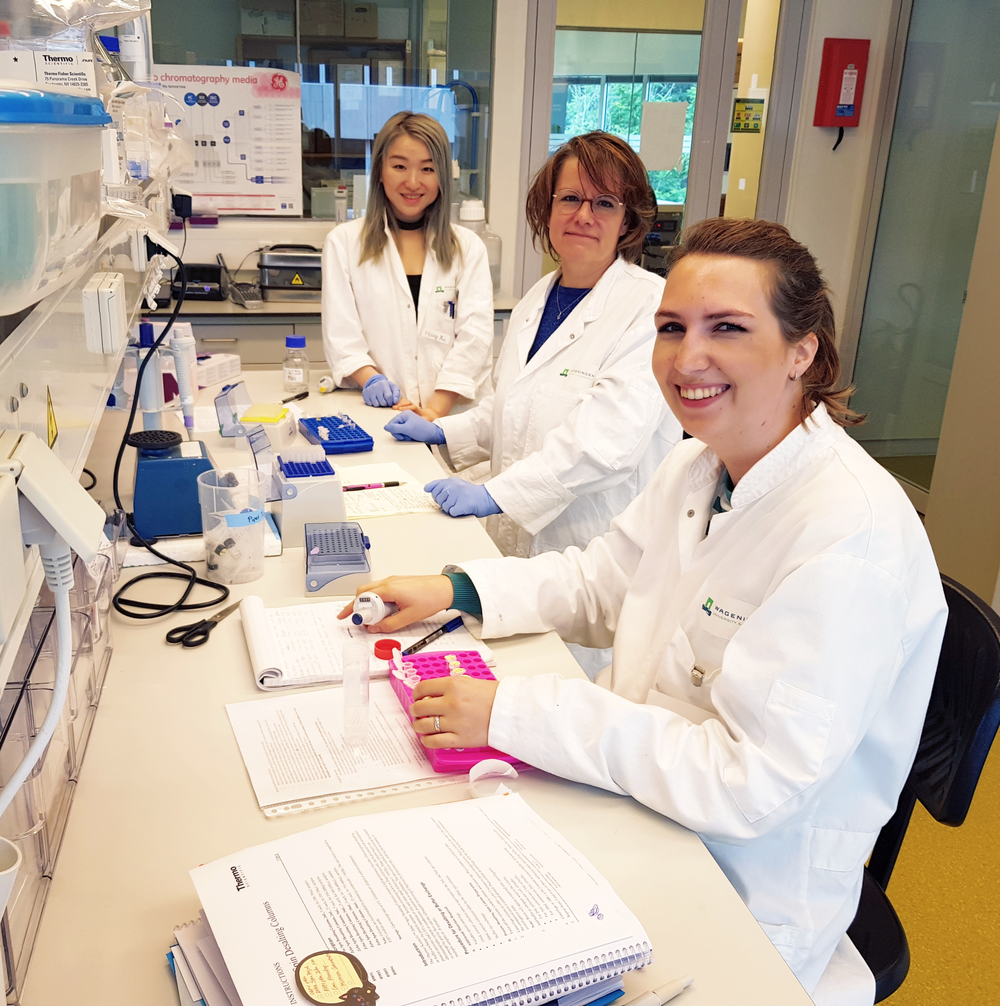Giving Beekeeping Guidance by cOmputatiOnal-assisted Decision making
A B-GOOD summer research story: Cooperation between partners at INRAE and WFSR
From July 26 to July 30, Dr. Anne Dalmon from INRAE (Avignon, France) visited Wageningen Food Safety Research (Wageningen, the Netherlands) for a collaboration of the development of an tool for on-site detection of two bee viruses, namely the acute bee paralysis virus (ABPV) and the chronic bee paralysis virus (CBPV).
The main goal of the collaboration comprised in developing a portable on-site antibody-based immunoassay for beekeepers to monitor virus infections in their bee colonies.
Researchers at INRAE have developed polyclonal antibodies against peptides for Acute bee paralysis virus (ABPV) and against the whole Chronic bee paralysis virus (CBPV), which were tested in ELISA for collected infected bees, artificially infected bees and purified virus.

Photo: Researchers from INRAE and WFSR working on the ABPV
Researchers at Wageningen Food Safety Research have been developing the lateral flow device (LFDs) technology for on-site detection of pesticides, and have provided the equipment to produce these LFDs. Dr. Dalmon spent a week in the Biosensor lab of Wageningen Food Safety Research and worked on developing these tests together with Mang Xu, Linda Willemsen, and Jeroen Peters.
Although there is still a long way to go before the ABPV and CBPV LFDs are ready for beekeepers, significant progress was made during this week. Researchers made use of the most of the expertise from both parties, and had a great time working together. It was an effective and fruitful collaboration between the two institutes and within the B-GOOD consortium.